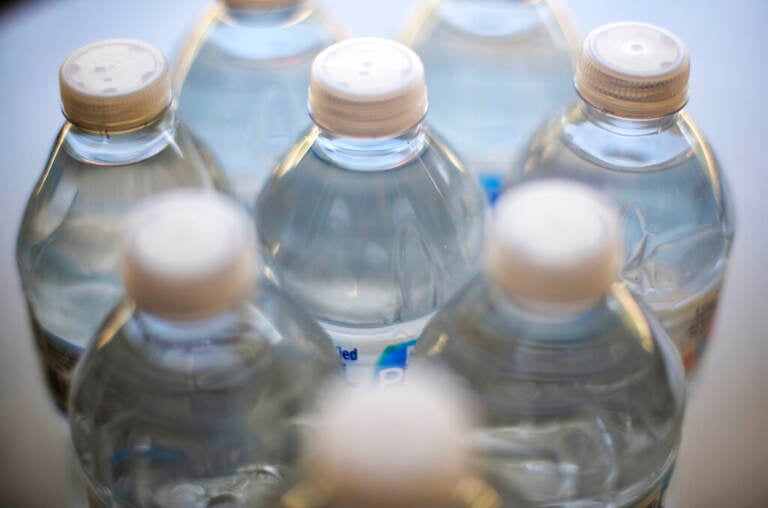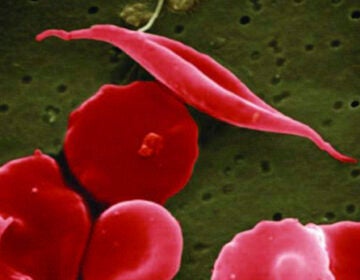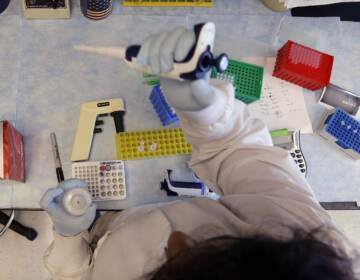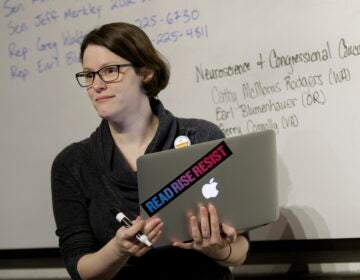What to know about plastics and our health
Microplastic particles are in the food we eat, the water we drink, and the air we breath. What risk do the chemicals in plastic pose to human health?
Listen 49:00
(AP Photo/Richard Vogel)
Look around your home……plastic is everywhere. It’s in our furniture, clothing, cosmetics, cleaners, medicine and all kinds of household items. It’s on our food, lining cans, packaging our fruits, vegetables, chips, cereal, meat and more.
We now know that tiny plastic particles can be found in our water, soil and air. We breathe in nano and micro particles, ingesting about 5 grams — or about credit card’s worth — of particles each week.
These particles have been found in human lungs, blood and stool, but what risk does exposure to plastic and the chemicals in it pose to human health? And how can we reduce our use and dependence on plastic for ourselves and the environment?
Guests
Phoebe Stapleton, assistant professor of pharmacology and toxicology at the Ernest Mario School of Pharmacy and Environmental and Occupational Health Sciences Institute at Rutgers University where she studies the effect of nanoplastics on maternal-fetal health.
Judith Enck, president of Beyond Plastics and visiting professor at Bennington University. She’s a former EPA Regional Administrator.@enckj
Read more
Consumer Reports, How to Eat Less Plastic – “And—more than anywhere else—plastic is in our packaging, encasing everything from laundry detergent to prescription pills, from the food we eat to the beverages we drink.”
Washington Post, There’s good reason to worry about the health risks of plastics – “Some findings suggest tiny plastic particles could disrupt immune and endocrine systems, damage organs, and cause other health problems.”
New York Times, The Types of Plastics Families Should Avoid – “There’s significant evidence that exposures to two types of chemicals found in plastics — phthalates and bisphenols — can affect health, especially if the exposure occurs in the womb or during early childhood”
WHYY is your source for fact-based, in-depth journalism and information. As a nonprofit organization, we rely on financial support from readers like you. Please give today.





